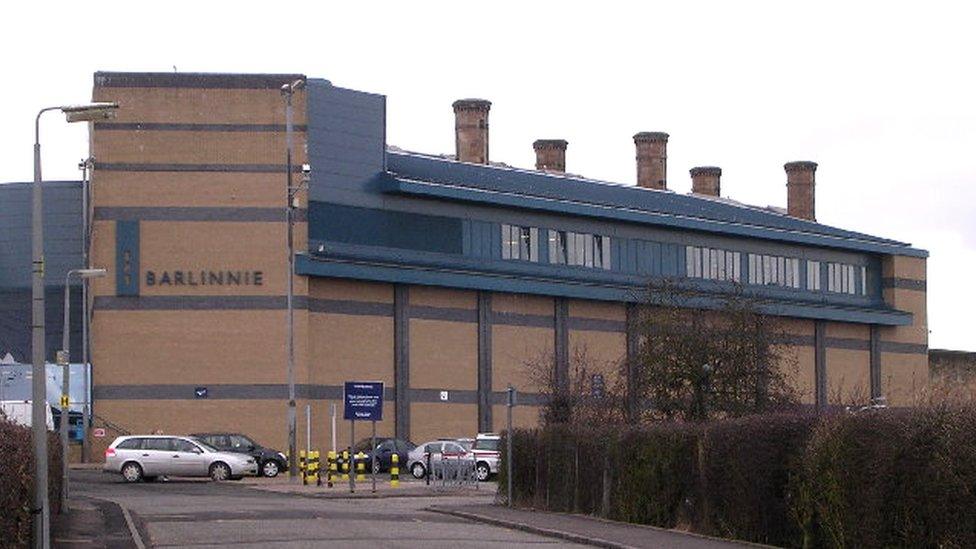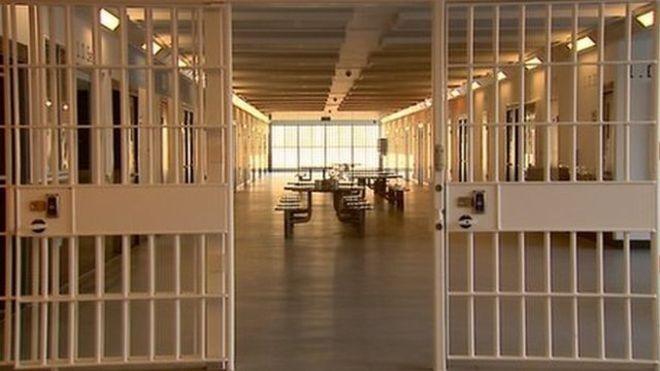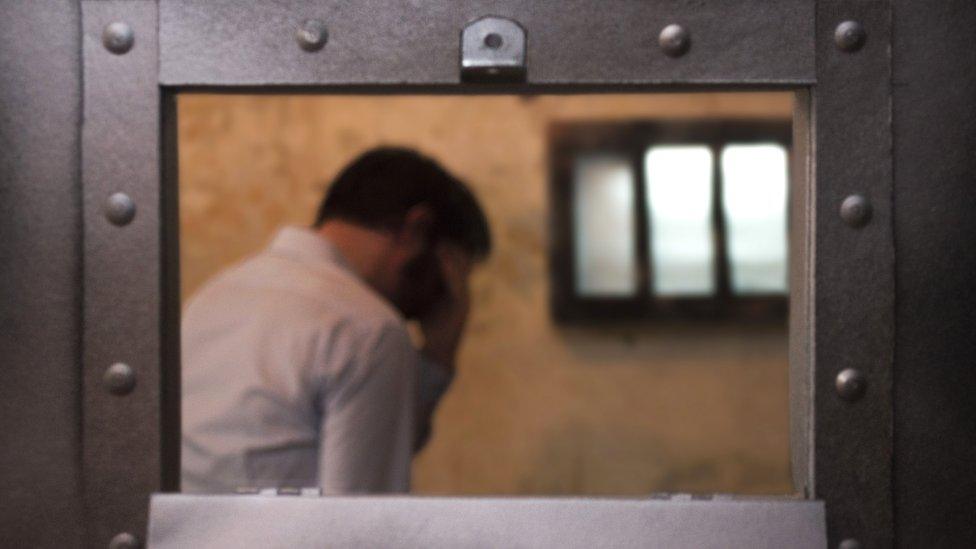Barlinnie prison 'issues safe drug use guidelines' to inmates
- Published

Synthetic drugs have become an increasing issue at prisons such as Barlinnie
Prison bosses have reportedly issued inmates at Glasgow's Barlinnie jail with official guidelines on how to safely take drugs behind bars.
The Scottish Prison Service (SPS) letter gives advice on "minimising the risk" of drug use, according to The Scottish Sun. , external
It follows a study by a leading European human rights body which found jails are "awash" with synthetic drugs.
The substances have been linked to rising levels of violence.
The SPS letter is understood to warn prisoners that there is "no safe way" to take synthetic or psychoactive drugs.
'Concerns or fears'
However, it says if inmates do take drugs, they should not be alone at the time.
It also issues safety guidelines and encourages prisoners to contact staff if they have any concerns or fears.
The Scottish Prison Service told BBC Scotland that any individuals thought to be under the influence of an unknown substance "receive the appropriate level of management and care".
An SPS spokeswoman added: "We recognise the importance of providing a safe and secure environment for our staff and those in our care.

"A comprehensive range of robust security measures are in place to prevent the introduction of contraband into our prisons. Significant investment continues to be made in the development of new technology and staff training to detect, deter and reduce the availability and supply of illegal drugs.
"Anyone found in possession of contraband or attempting to smuggle such items into our prisons will be reported to the appropriate authorities."
The BBC reported in October how prisoners had told members of the Council of Europe, external human rights body that it was "easy" to obtain psychoactive drugs, which were soaked into letters before being smoked.
However, the study group could not provide any direct evidence to back up the claims.
The SPS said at the time it was aware of problems highlighted in the report and that action was being taken.
'Rising trend'
Spokesman Tom Fox said trying to deal with the synthetic drugs issue had been "really difficult".
He added: "We haven't, fortunately, experienced the level of problems with these substances that maybe has been the case elsewhere.
"However, we have seen a rising trend in the last couple of years of people trying to introduce these substances into our prisons.
"They are very difficult to detect, although I am happy to say we seem to be making some progress in that direction."
- Published11 October 2019
